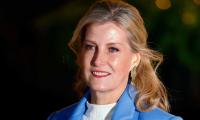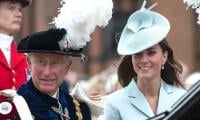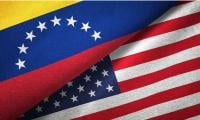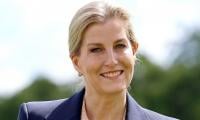Yaqub Ali Khan
Well-known diplomat and former foreign minister Sahibzada Yaqub Ali Khan passed away late on Monday night at the age of 95. The office of the prime minister of Pakistan issued a prompt testimonial to the only Pakistani diplomat who could be called Pakistan’s Henry Kissinger. A former lieutenant general who joined the army before Partition, Sahibzada Yaqub was part of the small clique of army officers that had been trained in England before their service. Khan rose quickly through the ranks of the military and was appointed governor of East Pakistan and later chief martial law administrator of East Pakistan. Whether Khan chose to leave the post of CMLA in East Pakistan before the 1971 war of independence or was withdrawn from command for other reasons is uncertain as he never wrote an autobiographical account. What is certain is that Sahibzada Yaqub was far too refined a man, with his love of Ghalib and Goethe, to have been left the murky business of conducting a war of questionable ethic in East Pakistan. Yaqub Khan was known to have learnt Bengali, besides seven other languages, and resigned from the army in 1973 before taking up a career as a diplomat.
It is here that his legacy in international politics begins. His appointment as ambassador to France under the Bhutto era served as training ground before he took up the post of foreign minister under the dictatorship of Gen Ziaul Haq. Despite being known to be a man of cultural nuance, Khan was a critical cog in the foreign policy side of the Zia regime which left Pakistan with the legacy of terrorism and religious fundamentalism. Khan played a central role in UN-sanctioned negotiations to end Soviet involvement in Afghanistan. Starting 1990, he remained associated with the UN as their special representative for the Western Sahara. Sahibzada Yaqub Khan later served as caretaker foreign minister in 1996 before unofficially helping General Musharraf smoothen ties with the US after deposing Nawaz Sharif’s government in 1999. Yaqub Khan was well-respected in international circles and close to many an American president. Like American diplomat Henry Kissinger, Khan was not a universally loved figure, but his diplomatic ability was such that he was respected by everyone. Sahibzada Yaqub Khan remained an essential figure in international diplomacy for Pakistan for over three decades. He was also founding chairman of the Aga Khan University Board of Trustees and commissioner of the Carnegie Commission on Preventing Deadly Conflict. His remarkable legacy will be remembered for a long while.
-
 After Skipping Kate Middleton's Event, Princess Eugenie 'ignores' Princess Of Wales's Birthday
After Skipping Kate Middleton's Event, Princess Eugenie 'ignores' Princess Of Wales's Birthday -
 Royal Family Issues Statement On Duchess Sophie's Royal Engagement
Royal Family Issues Statement On Duchess Sophie's Royal Engagement -
 Kate Middleton And Meghan Markle's Decade-long Tale Unfolds
Kate Middleton And Meghan Markle's Decade-long Tale Unfolds -
 Kate Middleton Shares Unexpected Insight From Her Cancer Journey
Kate Middleton Shares Unexpected Insight From Her Cancer Journey -
 Kate Middleton's Birthday Marked By Westminster Abbey Bell-ringing
Kate Middleton's Birthday Marked By Westminster Abbey Bell-ringing -
 Prince Harry's Security Review Still Underway: Report
Prince Harry's Security Review Still Underway: Report -
 Netflix Sci-fi Series Black Mirror Gets An Eighth Season
Netflix Sci-fi Series Black Mirror Gets An Eighth Season -
 Amy Madigan Recalls Husband Ed Harris’ Reaction To Her Transformation In 'Weapons'
Amy Madigan Recalls Husband Ed Harris’ Reaction To Her Transformation In 'Weapons' -
 Sarah Jessica Parker Drops Rare Insight Into 30-year Marriage
Sarah Jessica Parker Drops Rare Insight Into 30-year Marriage -
 Will Venezuela Rebuild Diplomatic Relations With US?
Will Venezuela Rebuild Diplomatic Relations With US? -
 Elton John Shares How He Shaped An Entertaining Persona
Elton John Shares How He Shaped An Entertaining Persona -
 Paul Mescal Hints At New Artistic Turn After Stepping Into McCartney’s Shoes
Paul Mescal Hints At New Artistic Turn After Stepping Into McCartney’s Shoes -
 Kendall Jenner Reveals She's In Her 'me Era' After Consistent Relationships
Kendall Jenner Reveals She's In Her 'me Era' After Consistent Relationships -
 Sadie Sink Reflects On Consistent Identity Over The Years
Sadie Sink Reflects On Consistent Identity Over The Years -
 Duchess Sophie Sounds Alarm On 'worst Humanitarian Crisis'
Duchess Sophie Sounds Alarm On 'worst Humanitarian Crisis' -
 George Clooney Gets Candid About Self Perception
George Clooney Gets Candid About Self Perception



